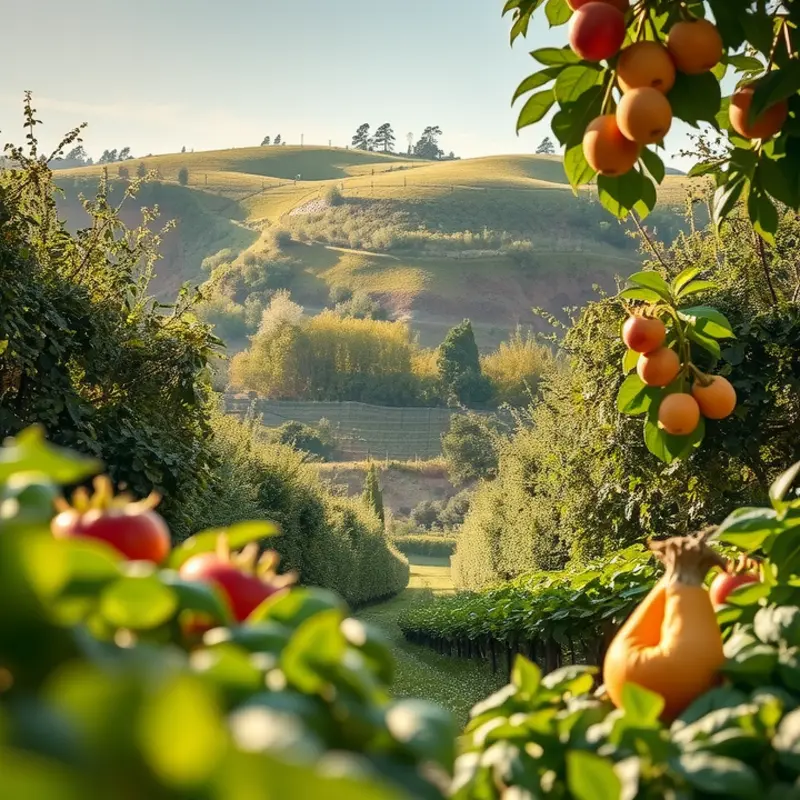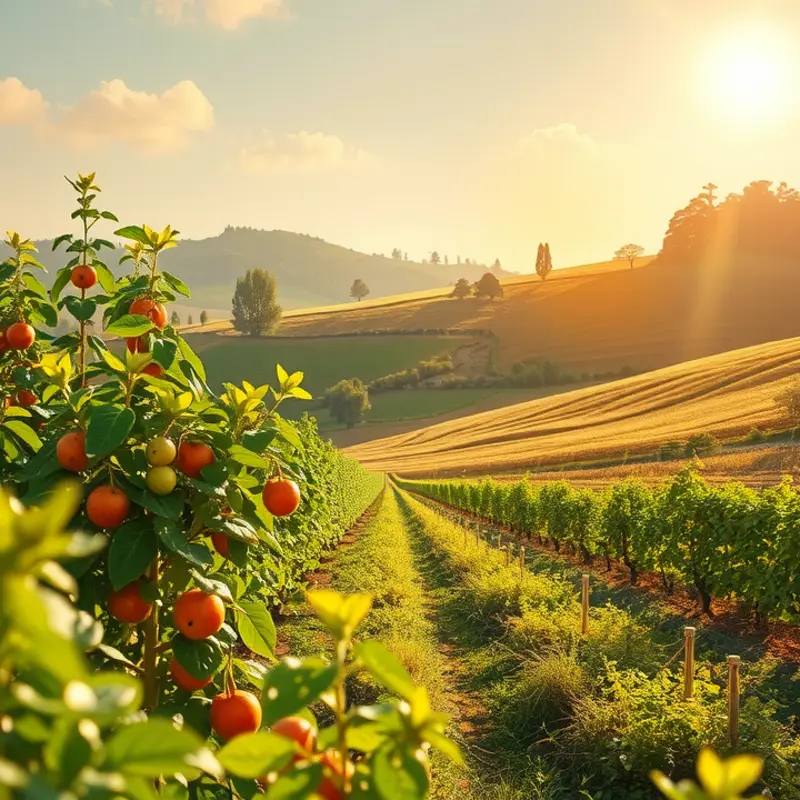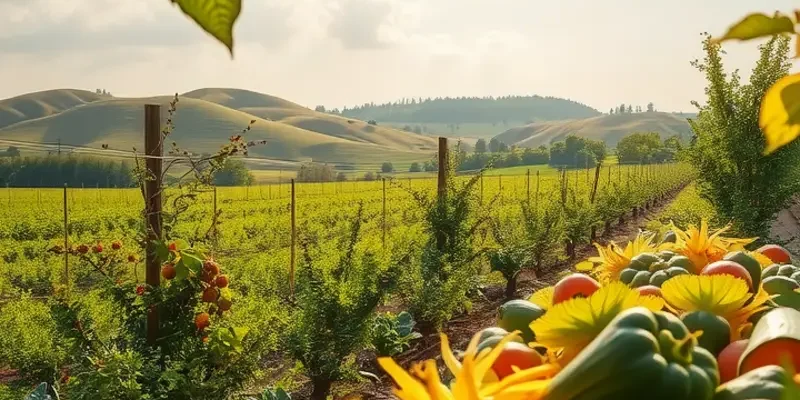In a world more focused on sustainability than ever, the choices we make around food can have a profound impact on our environment. Climate-friendly eating practices not only contribute to better planetary health but also enhance our personal well-being. From reducing food waste to selecting sustainably sourced ingredients, even small changes in eating habits can lead to significant positive outcomes. Let’s explore actionable strategies for embracing an eco-conscious diet that honors both our taste buds and the Earth.
Rooted in Sustainability: The Power of Local and Seasonal Foods

Choosing local and seasonal foods is a vibrant step towards sustainable eating. The decision not only aligns with eco-friendly practices but also holds the promise of enhanced personal health. When you select produce that’s grown close to home, you cut down on the greenhouse gas emissions associated with long-distance transportation. Additionally, these foods often require less packaging and fewer preservatives, minimizing their ecological impact.
The benefit of seasonal eating lies in the quality and freshness of the produce. Fruits and vegetables picked at their peak ripeness burst with flavor and nutritional content. Their journey from farm to table is shorter, preserving vital nutrients often lost during extended storage and transit. This means not only a tastier, more vibrant diet but one that supports your body’s needs optimally with the vitamins and minerals integral to health.
Incorporating local, seasonal produce into your meals involves embracing the diverse offerings throughout the year, adjusting your menu to match the shifting seasonality. In spring, tender greens and early berries emerge, while summer boasts an abundance of tomatoes, corn, and stone fruits. Autumn brings root vegetables and squash into focus, and winter serves up hearty greens and tubers. By rotating through these choices, you celebrate variety, ensuring no two meals feel repetitive.
Supporting local farmers by buying their produce strengthens your community. Purchases made at local markets often mean funds are reinvested in the community, fostering economic resilience. Additionally, small-scale farms are more likely to engage in sustainable farming practices, which prioritize soil health and biodiversity over pure yield.
For those looking to make local and seasonal eating more manageable, meal prepping with these ingredients can ease the transition. One might explore practical ingredient batching as a method to stock your pantry efficiently. By taking time to prepare seasonally inspired meals in batches, you save time and maintain a sustainable eating pattern.
The impact of choosing local and seasonal foods is far-reaching, underpinning a dietary choice that’s not just beneficial for personal health, but integral to the health of the planet. In making these deliberate choices, you partake in a movement towards a sustainable food system that respects the rhythms of nature, supports the local economy, and cherishes the environment we all share.
Waste Not, Want Not: Smart Strategies for Reducing Food Waste

Reducing food waste plays a crucial role in combating climate change, as it directly affects greenhouse gas emissions. When food ends up in landfills, it decomposes and releases methane, a potent greenhouse gas. Yet, by embracing smart strategies that focus on maximizing the use of our ingredients, we can significantly reduce the carbon footprint of our dining experiences.
One of the foundational strategies is effective meal planning. By mapping out meals for the week and sticking to a list, you minimize impulsive purchases and ensure you’re buying only what you’ll use. Consider integrating practical ingredient batching techniques, which allow you to prepare components that can be used across multiple meals. This not only saves time but ensures all your ingredients are put to good use. For more on this, explore practical ingredient batching.
Another impactful method is becoming savvy with leftovers. Transforming remnants into new meals taps into creativity while reducing waste. A roast chicken dinner one night can be reinvented into chicken salad, wraps, or stir-fries. Keep an open mind and see each leftover as a building block for another delicious creation.
Understanding expiration dates is also key. “Best by” dates often indicate quality rather than safety. Trust your senses — often a sniff and visual check can tell you if something is still good to eat. This mindfulness not only cuts down on prematurely discarded food but also fosters a greater connection to what we consume.
Composting is another powerful waste-reduction strategy. Turning food scraps into nutrient-rich compost diverts them from landfills and enriches soil for gardening. Even if you don’t have space for a garden, many communities have composting programs you can contribute to.
Finally, consider smart storage as a tactic to extend the life of your ingredients. Keeping food fresh longer reduces waste and retains its nutritional value. Store perishable items like fruits and vegetables in the right sections of your fridge, and keep them at the proper temperature to extend their shelf life.
Incorporating these sustainable practices changes the way we interact with food. Each meal becomes an opportunity to consciously reduce waste, thereby taking an active role in lessening environmental impact. A mindset of resourcefulness isn’t just good for the planet — it nurtures an appreciation for the bounties of nature, transforming our everyday eating into a meaningful endeavor.
Final words
Adopting climate-friendly eating practices is not just an idealistic notion; it’s a practical and achievable path toward a more sustainable future. By intentionally choosing local, seasonal foods and reducing food waste, individuals can play a vital role in creating a healthier planet. Each meal is a conscious opportunity to make choices that resonate with environmental values, promising nourishment for both ourselves and our Earth. So let these practices inspire you to explore your local food ecosystem and have fun turning sustainable eating into a lifestyle. The positive impact of your choices can ripple through communities and ecosystems alike, fostering a brighter future for generations to come.








